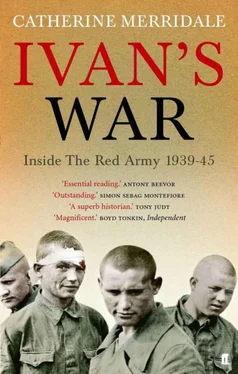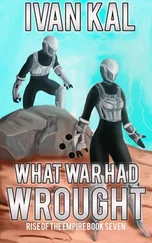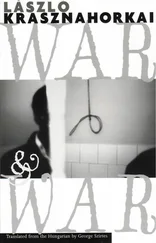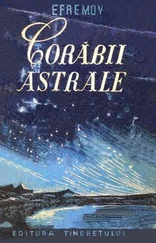17 See Night of Stone , p. 304. The consensus among psychiatrists in Russia had shifted by 2002, when I asked these questions again. Contact with European and American medicine had clearly changed the prevailing wisdom, at least among doctors currently in practice. But retired wartime medical staff, including nurses and psychiatrists interviewed in Kursk, Smolensk and Tbilisi, had not changed their position.
18 The point is made in Amnon Sella’s optimistic book. The Value of Human Life , p. 49.
19 Gabriel, p. 56.
20 I am grateful to Dr V. A. Koltsova, of the Moscow Institute for Military Psychology, for sharing this unpublished material with me in 2002. See also Albert R. Gilgen et al., Soviet and American Psychology during World War II (Westport, CT, 1997).
21 Gabriel, p. 63.
22 Some were released, although they carried the stigma of mental illness for ever. Many of these ended up in prison camps later in life. Others joined the colonies of the crippled in the White Sea and lived out their lives in isolation. The worst fate, probably, was to remain in a Soviet psychiatric hospital of this era.
23 Gabriel, pp. 42–8.
24 Vyacheslav Kondrat’ev, cited by George Gibian, ‘World War 2 in Russian National Consciousness,’ in Garrard and Garrard, World War II and the Soviet People (London, 1993), p. 153.
25 Order of the deputy defence commissar, no. 004/073/006/23 ss; 26 January 1944, Velikaya otechestvennaya , 2 (3), p. 241.
26 On the use of convicts for this work, see the captured report of the 4th tank army, Bundesarchiv RH-2471, p. 16, 4 August 1944. See also RH-2471, 33 (prisoner of war reports). Temkin (p. 124) also recalled that a convicted murderer was used for reconnaissance work in his own unit.
27 Viktor Astaf’ev, Tam, v okopakh (Vospominaniya soldata) (Moscow, 1986), p. 24.
28 Examples are to be found in GARF 7523/16/388, which contains the records of the commission that dealt with the reinstatement of medals to soldiers who had been convicted of crimes at the front.
29 Drobyshev, p. 94.
30 For a parallel from the British army in the First World War, see Frank Richards, Old Soldiers Never Die (London, 1933), p. 194.
31 Drobyshev, p. 94.
32 Vasily Chuikov, The End of the Third Reich, trans. Ruth Kisch (London, 1976), p. 40.
33 Drobyshev, p. 94.
34 Velikaya otechestvennaya , 14, p. 619; report dated 1 October 1944.
35 Lev Kopelev, No Jail for Thought , trans. Anthony Austin (London, 1977), p. 38.
36 Velikaya otechestvennaya , 2 (3), pp. 265–6.
37 Ibid ., p. 295.
38 Velikaya otechestvennaya , 6, p. 247, on the sorry state of the kitchens in the reserve political units of the 2nd Baltic Front.
39 TsAMO, 523/41119s/1, 17; see also similar reports from German intelligence, RH2-2338, 10 (1944).
40 RGVA, 32925/1/516, 177 (April 1944).
41 RGVA, 32925/1/515, 139–40.
42 RGVA 32925/1/516, 4 and 178.
43 Velikaya otechestvennaya , 14, 590.
44 TsAMO, 523/41119s/1, 169.
45 Ermolenko, p. 52.
46 See Overy, pp. 238–9; Erickson, Berlin , pp. 198–200.
47 Chuikov, Third Reich , p. 27.
48 Belov, p. 469 (31 March 1944).
49 Ibid ., pp. 473–4 (18 June 1944).
50 Glanz and House, p. 209.
51 Cited in Garthoff, p. 237.
52 Erickson, Berlin , p. 225.
53 RH2-2338, 44-07, 1‒2.
54 GASO, R1500/1/1, 63.
55 Chuikov, Reich , p. 28.
56 RH2-2467, 118, for the leave. Cash incentives for planes and ‘tongues, see RH2-2338.
57 Sidorov, pp. 99 and 108.
58 Pravda , 19 July 1944; Werth, p. 862.
59 Ermolenko, p. 46.
60 Ibid ., p. 50.
61 Pis’ma s fronta i na front , p. 92.
62 Stalin, O velikoi otechestvennoi voine , pp. 145–6.
63 RH2-2338, March and April 1944.
64 See, for example, Pravda , 26 August 1944.
65 German intelligence reports consistently stressed this. See, for example, RH2-2338; 4408 (monthly intelligence report for August 1944).
66 On ethnically based Ukrainian nationalism, see Amir Weiner, Making Sense , pp. 240–1.
67 See Leo J. Docherty III, ‘The Reluctant Warriors: The Non-Russian Nationalities in Service of the Red Army during the Great Patriotic War 1941–1945,’ JSMS , 6:3 (September 1993), pp. 432–3.
68 RH2-2468, 35.
69 Ibid ., 80.
70 Ibid ., 35 and 38.
71 Details from RGASPI, 17/125/241, 93–4.
72 RH2-2468, 35.
73 A point made specifically – and understandably believed – by German intelligence. See RH2-2338, 44-09, 1.
74 This finding confirms the comments in RH2-2468, 80.
75 RGASPI, 17/125/241, 88.
76 Ibid ., 89.
77 Ibid ., 91–2; 95.
78 Ibid ., 95.
79 Velikaya otechestvennaya , 6, pp. 292–5.
80 Ermolenko, pp. 59 and 62.
81 Kopelev, p. 53.
82 The agitation department’s concern was fully justified. See Senyavskaya, Frontovoe pokolenie , p. 91.
83 For other evidence of this, see Bundesarchiv, RH2-2338, 45-02, 2–3.
84 Beevor, Berlin , p. 34.
85 Their comments were faithfully collected. For examples from the summer of 1944, see RGVA, 32925/1/515.
86 Chuikov, Reich , p. 34.
87 RH2-2468, 6–7, 27.
88 See, for example, the assessment in Glantz and House, p. 214. A more detailed account is given in Erickson, Berlin , pp. 247–90.
89 Weiner, p. 149.
90 RGVA 32925/1/516, 176 (April 1944).
91 RH2-2337, 58.
92 The idea was that these shot around corners.
93 Bundesarchiv, RH2-2337, 70–71.
94 These jokes are among those recalled for me by veterans, and they came up in more than one interview. They can also be found, lovingly collected, in Bundesarchiv, RH2-2337, the Wehrmacht’s own report on Soviet anti-Semitism.
95 For a 1943 soldier’s letter to exactly this effect, see Senyavskaya, Frontovoe pokolenie , p. 83.
96 In fact, civilian casualties were highest among Ukrainians, and proportionately, though not numerically, highest of all in Belorussia.
97 Werth, pp. 702–6.
98 Bartov, The Eastern Front , p. 132.
99 Velikaya otechestvennaya voina , 4, p. 289.
100 See ibid ., p. 289; see also Vserossiiskaya kniga pamyati , 1941–45 (Moscow, 1995); Obzornyi tom, p. 406; Glantz and House, p. 51.
101 Werth, pp. 387–8.
102 Ibid ., 702; Bundesarchiv, RH2-2337, 104.
103 Garrard and Garrard, Bones , p. 174.
104 Weiner, p. 260.
105 For a discussion of this, see Garrard and Garrard, Bones , pp. 180–7.
106 Pravda , 3 August 1944.
107 Werth, p. 890.
108 Ibid ., p. 892.
109 Ibid ., p. 702.
110 RGVA 32925/1/515, 2.
111 RGASPI, 17/125/190, 16.
112 I have heard a number of explanations for the pogrom in the city’s Podol district. This one was offered to me by Antony Beevor and is based on archival documents he saw in Moscow.
113 Overy, pp. 309–11; on the Doctors’ Plot, see Louis Rapoport, Stalin’s War Against the Jews (New York, 1990); Jonathan Brent and Vladimir P. Naumov, Stalin’s Last Crime: The Doctor’s Plot (London, 2003).
1 Chuikov, Reich , p. 18.
2 RGASPI-M, 33/1/261, 9 and 24.
3 RGASPI-M, 33/1/1409-19, 6.
4 RGASPI-M, 33/1/261, 29.
5 Intercepted field post, Bundesarchiv, RH2-2688, 51 (January 1945).
6 I am grateful to Professor W. Brus, himself a witness to Russia’s war at the time, for this insight into Ehrenburg’s wartime standing.
Читать дальше












